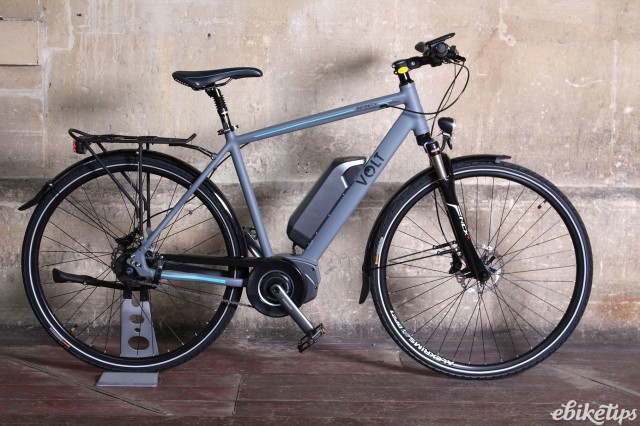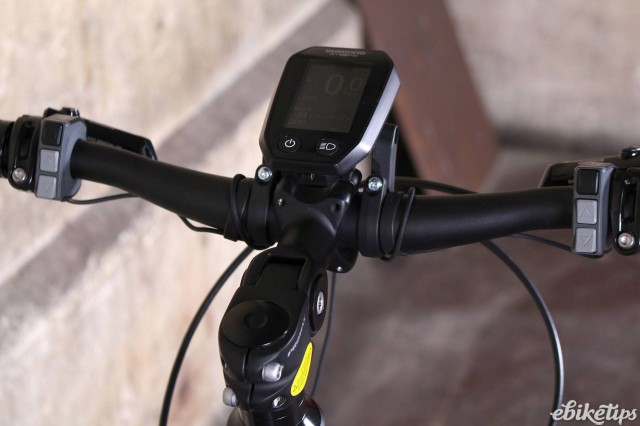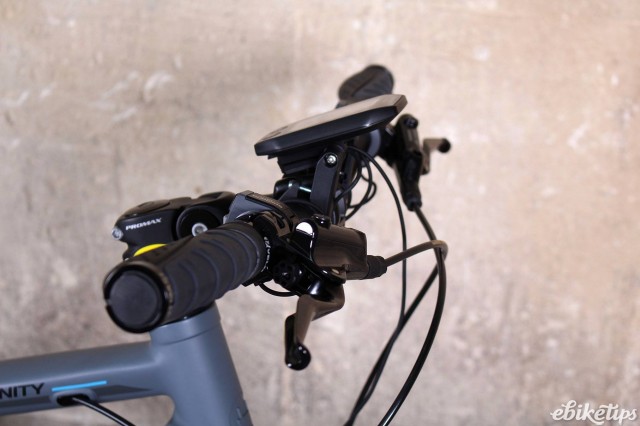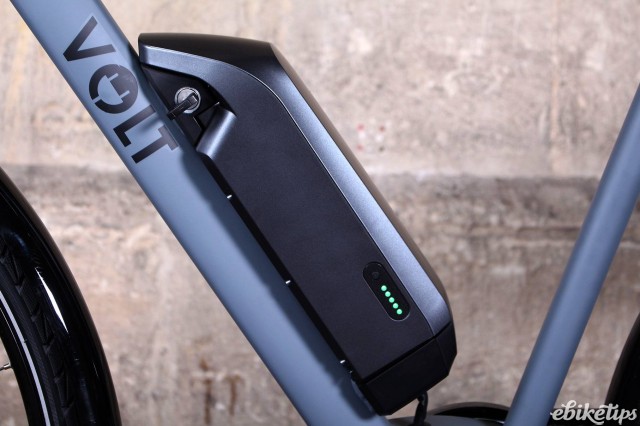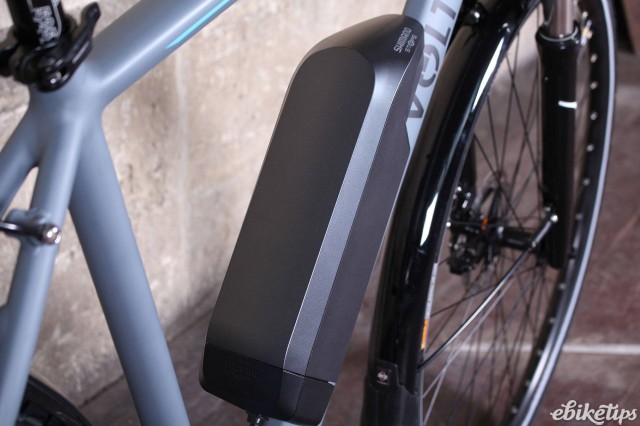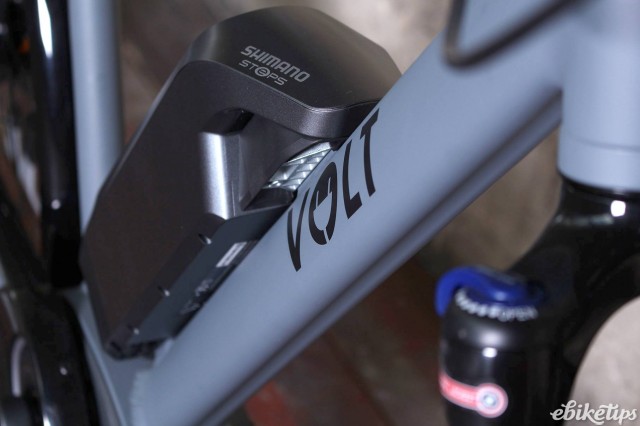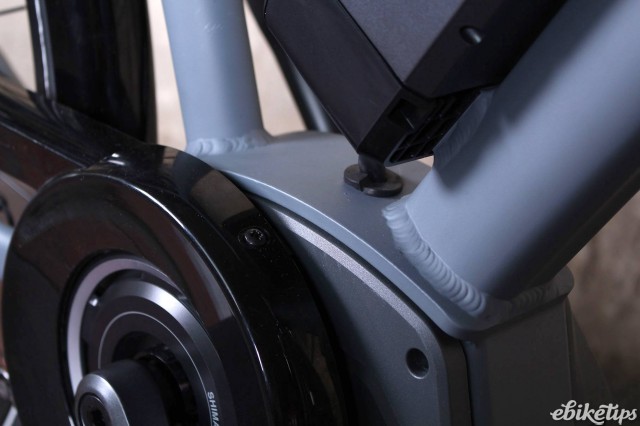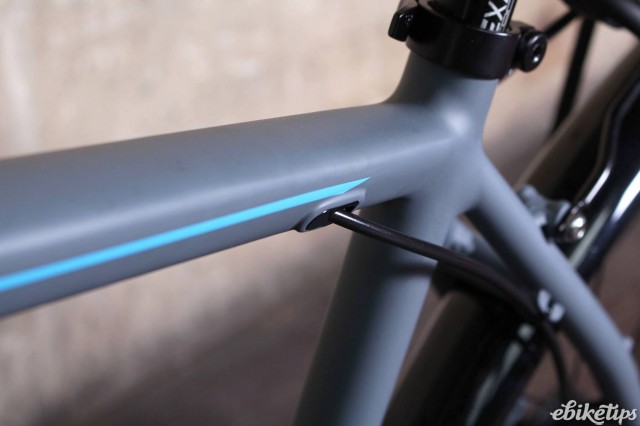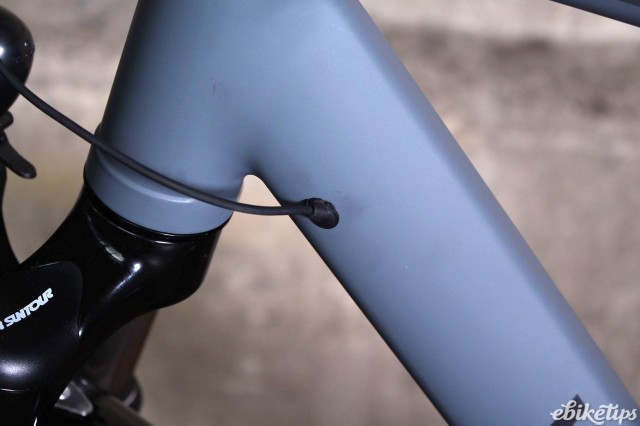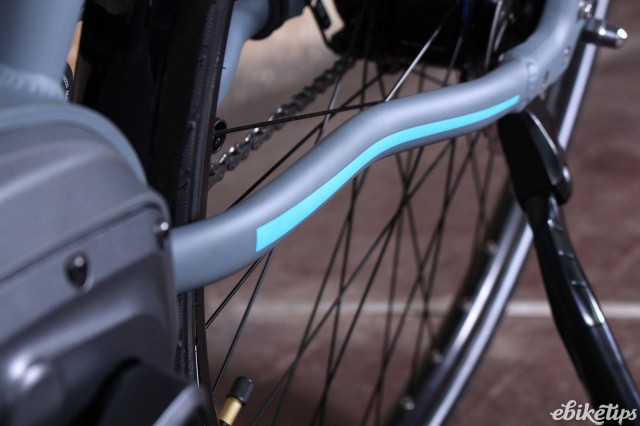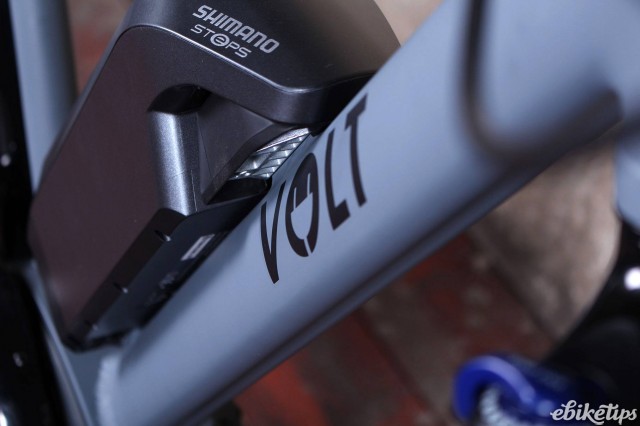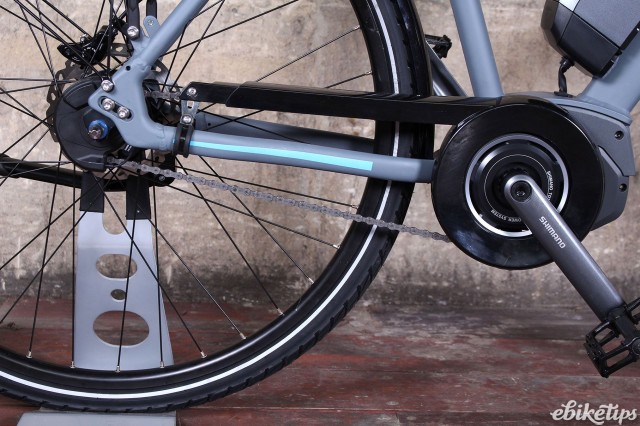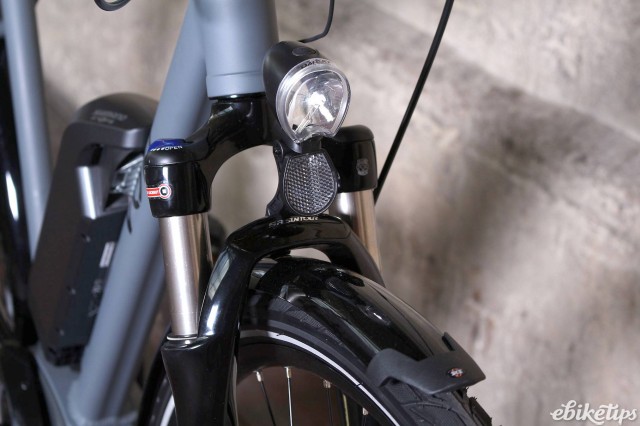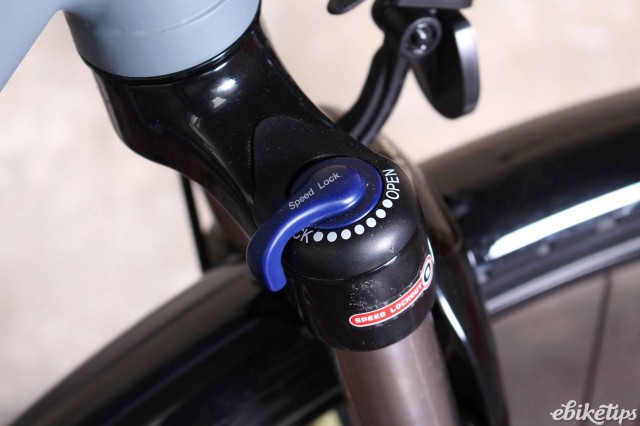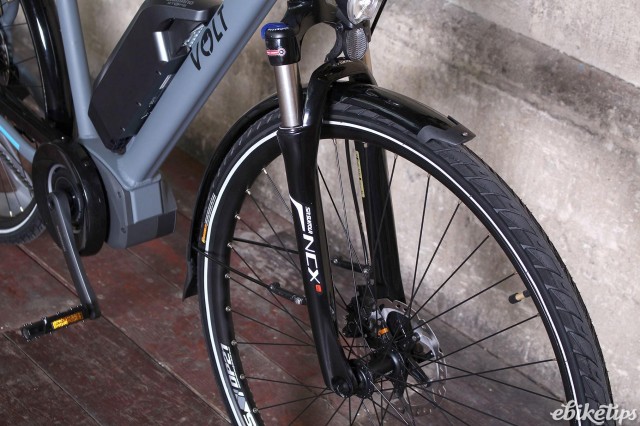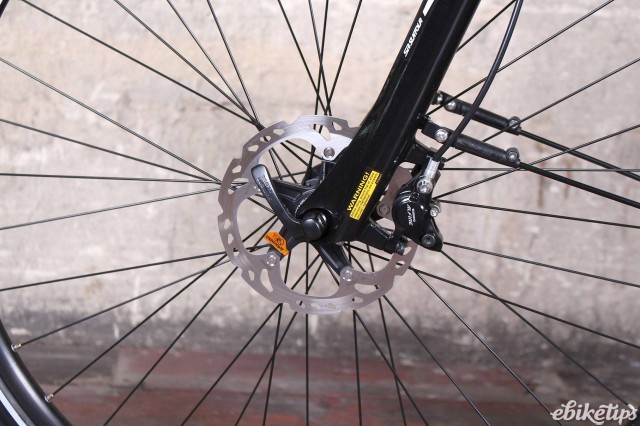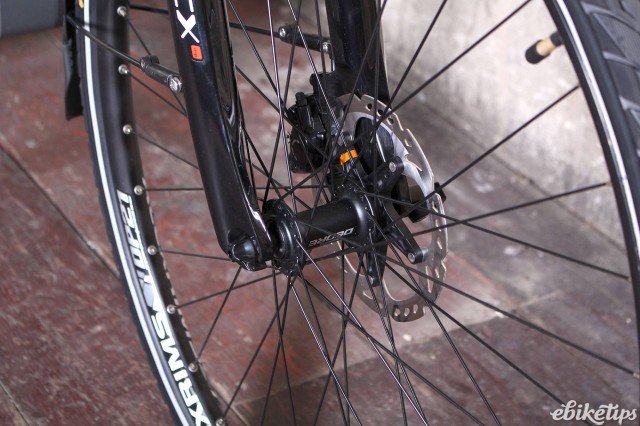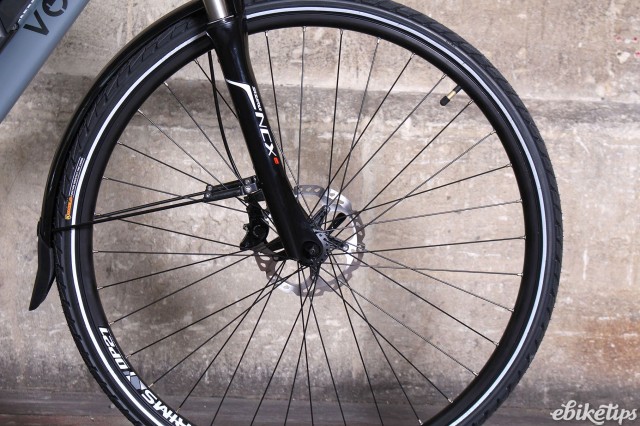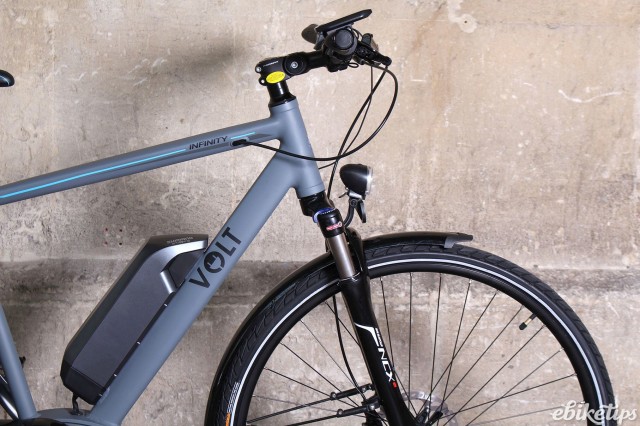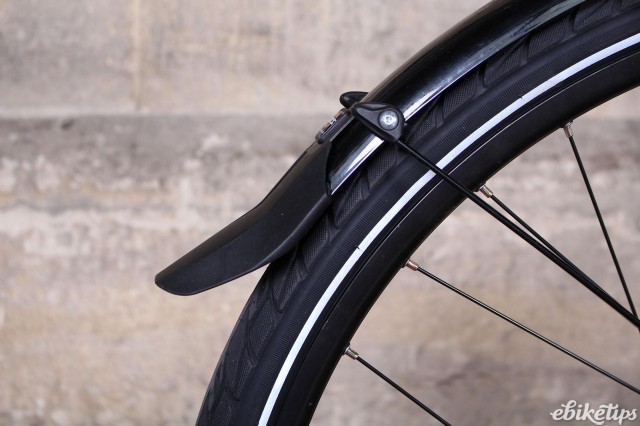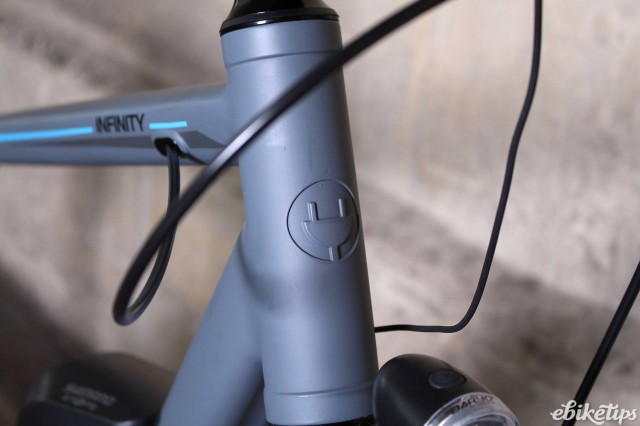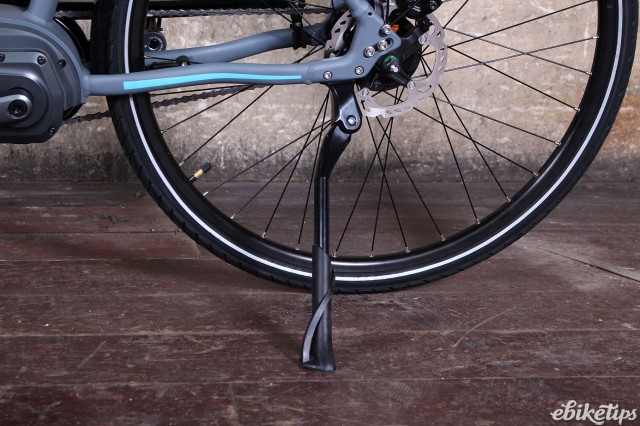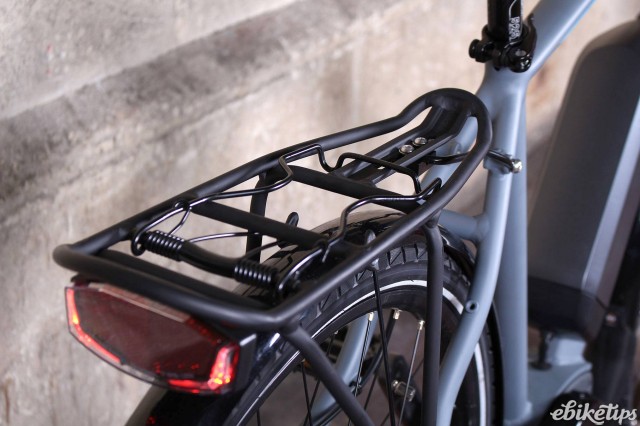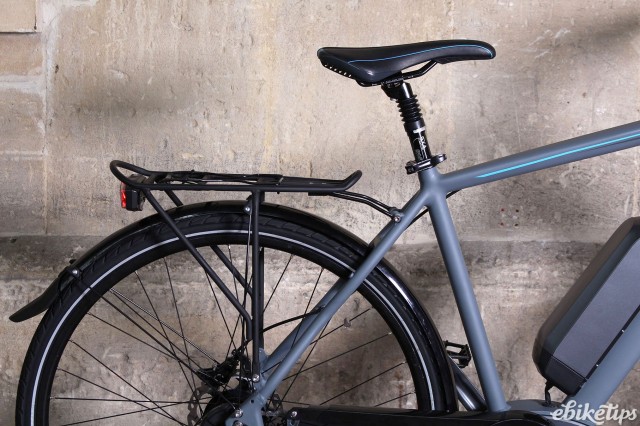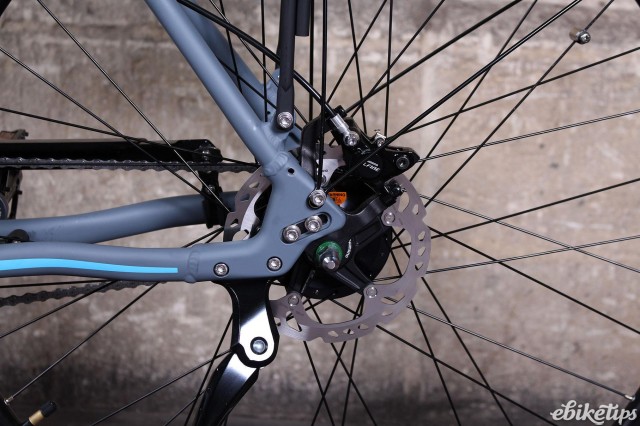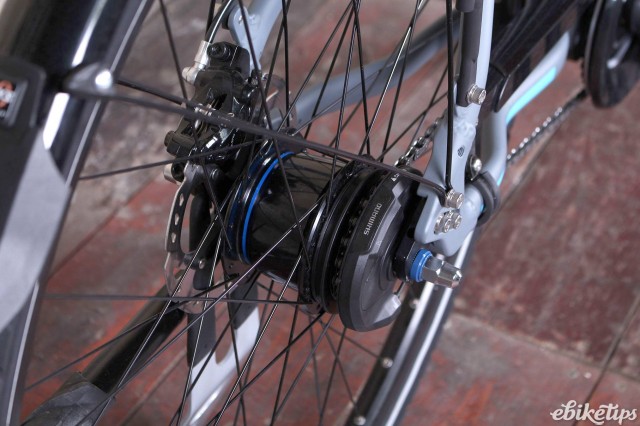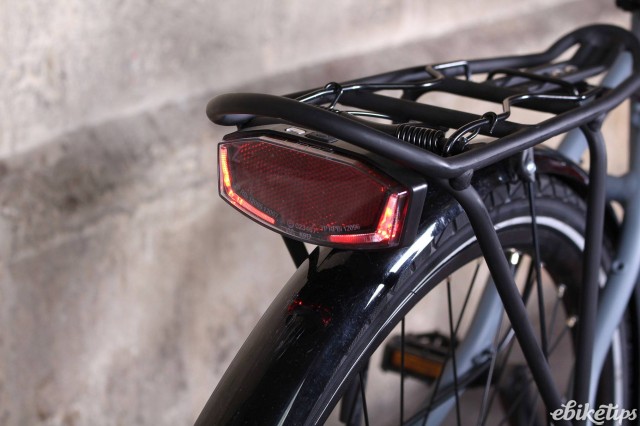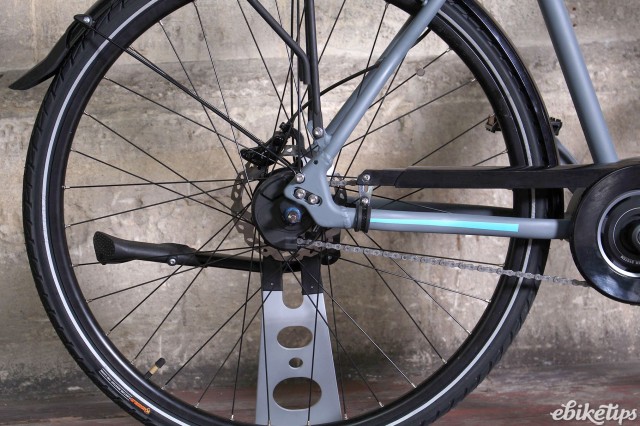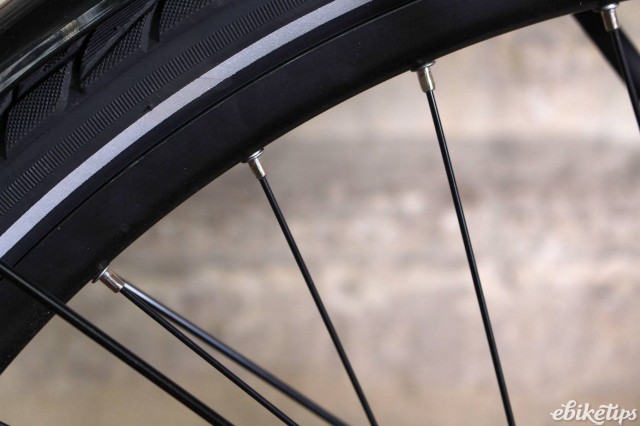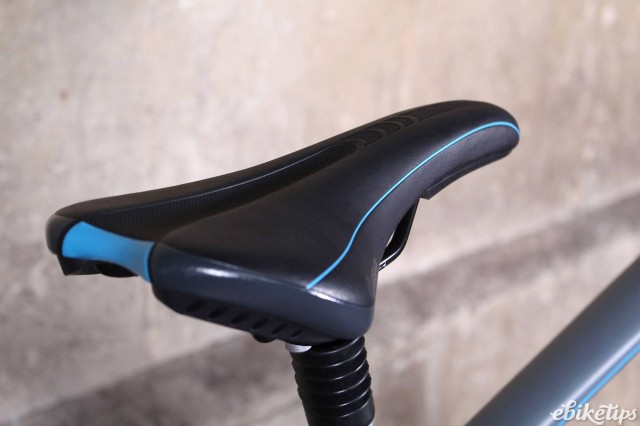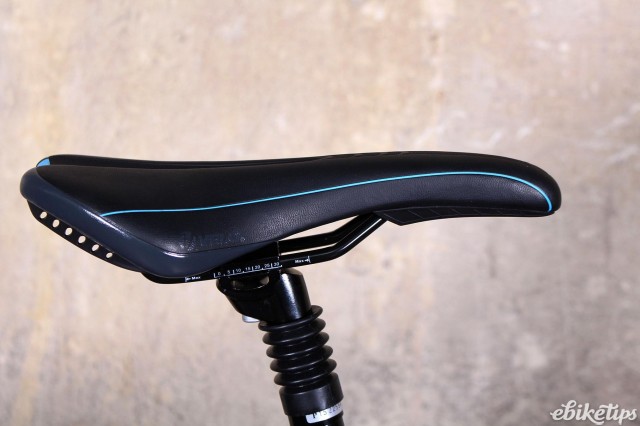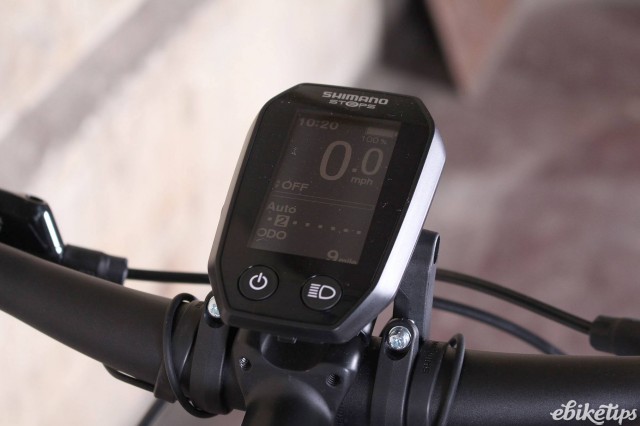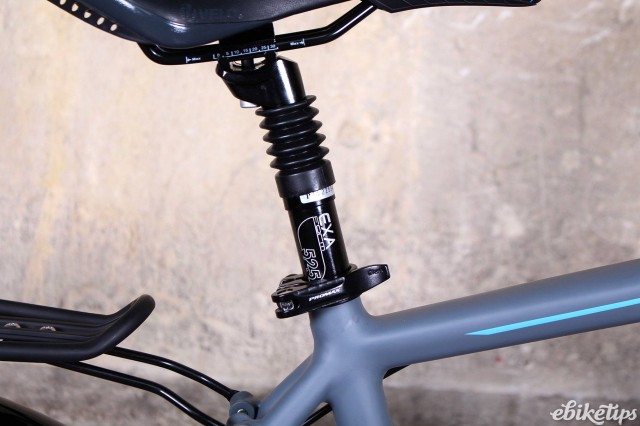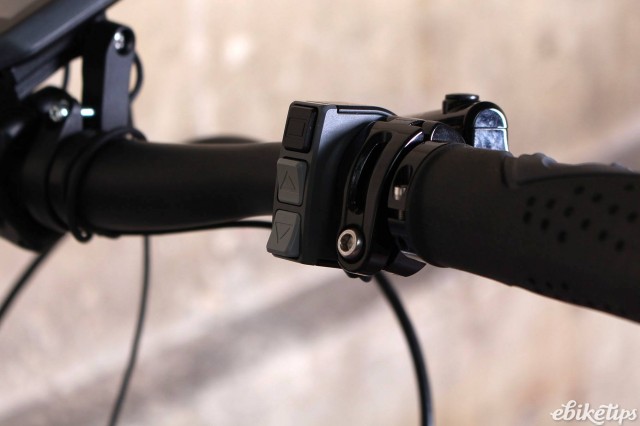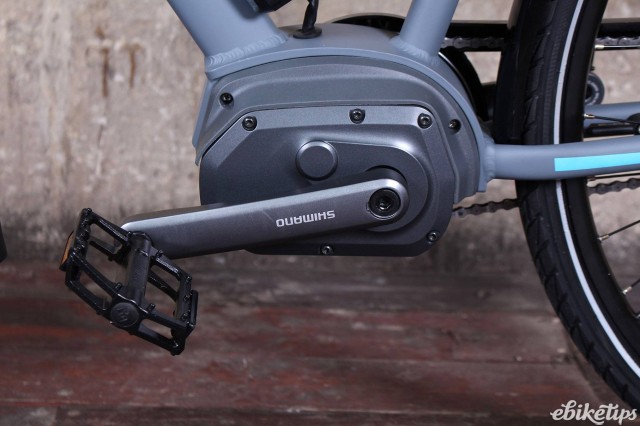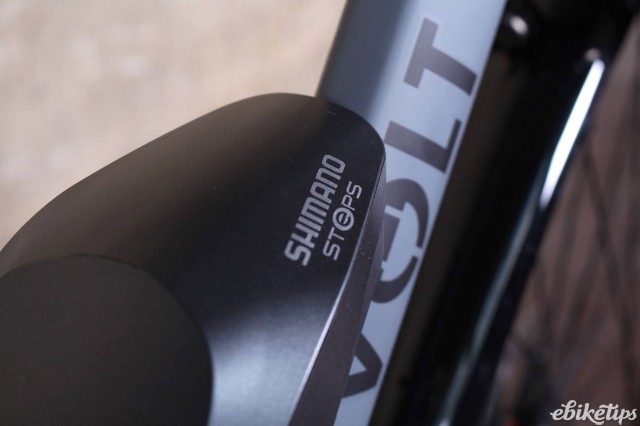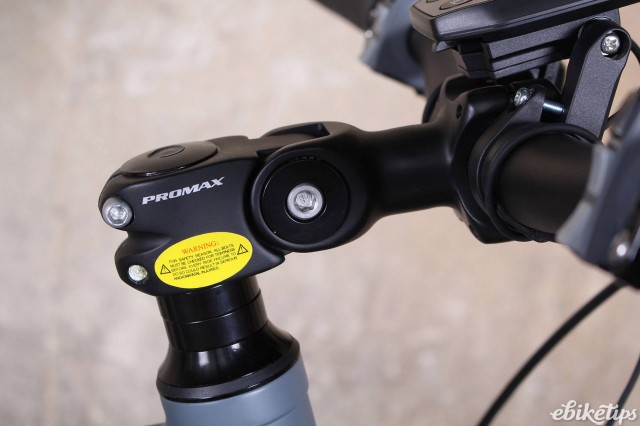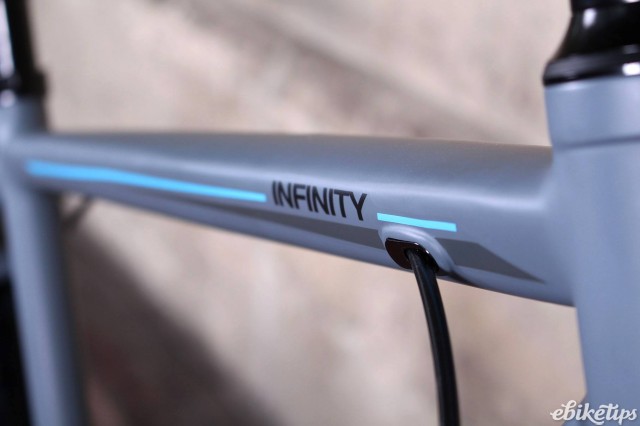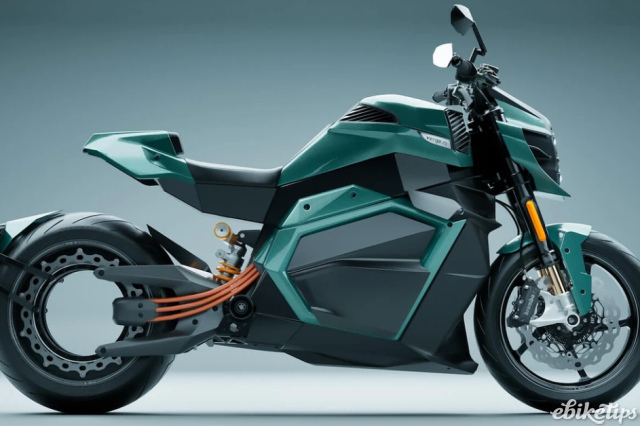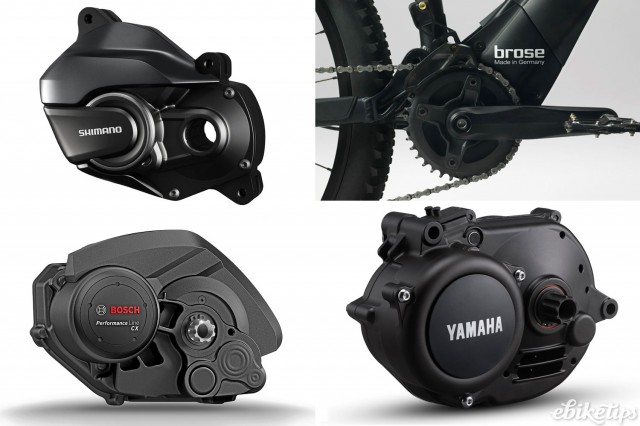Volt Infinity STEPS
Overview
- Good looking frame with excellent spec
- Motor performance is good
- Sensible gear range
- Suspension seatpost a bit basic
- Auto-shift a work in progress
The Volt Infinity is a well-specced premium hybrid that's well specced and enjoyable to ride. The Shimano STEPS drivetrain offers good assistance and plenty of range, although we're yet to be convinced by Shimano's auto-shift functionality; that feels like a bit of a work in progress.
So what have we here? The Infinity is built around a 6061 T6 aluminium alloy frame and features 700c city wheels, with Kenda city tyres. We tested the diamond-framed bike but there's also a step-through version with the same spec. Because the Shimano STEPS frame-mounted 400Wh battery swings out to the side to remove, it's easy enough to offer a dropped frame, although it's certainly not as low as some.
Shimano STEPs is one of the most common mid motor systems on the market. It's been around since 2013 and has found its way on to a wide range of bikes. At lower price points Volt use a Bafang rear hub motor. You don't see many STEPS-equipped bikes for under £2,000 so the £2,499 for this bike, with a good quality suspension fork and an electronically-controlled Shimano Alfine Di2 rear hub, is pretty much on the money.
Volt give the weight of the bike as "19.5kg without batteries" which is about as useful as weighing it without the wheels. They do also give a battery-included weight of 21.65kg, our bike nudged just over 22kg which is about par for the course for a bike of this type.
The alloy stem is adjustable and you get a basic suspension seatpost. The Infinity is kitted out for city life, with full mudguards, a kickstand, a rack and integrated lights controlled from the STEPS remote. Our test bike had the new, larger display and an eight-speed hub, and the STEPS firmware was updated to allow for auto-shifting of the Di2 rear hub.
Dave says: For two and a half grand you'd expect the Volt Infinity to be a well put together and high quality bike, and it doesn't disappoint. Everything's in its right place and the overall look of the bike is clean, with minimal extra cabling visible. The matt grey colour scheme won't be to everyone's taste but it's well finished and the paint is hardy, resisting knocks and scuffs pretty well. The position is on the sporty side of neutral for me, but I'm fairly tall and I had the adjustable stem set low; you can certainly get a range of positions and if you're shorter than me you'll be more sat up on the 20.5" frame.
Gearing-wise the Infinity is spot on, with no superfluous gears way above the assistance limit and plenty of climbing ratios for when the road rears up. The Di2 remote shifter works very well, and the motor cuts out during shifting to reduce load on the hub gear. The Alfine hub shifts better under load than the Nexus hub that's often specced on bikes like this, too. It's a quality bit of kit that should easily last the life of the bike.
Shimano's auto-shift was in its first incarnation when I tested this bike and I didn't really get on with it. It's very cadence-sensitive so sometimes when you're spinning away from the lights it'll shift you up two or even three gears only to shift you back down the other way when your legs start going too slowly. The cadence it works with is adjustable across a fairly wide range but I couldn't really find one that worked for me. If you have a low cadence and you're putting minimal power through the cranks it's pretty decent, but the harder you try the less well it works. It's certainly not as good as the Nuvinci Harmony system that we tested on the A2B Entz ; that has its idiosyncrasies but overall it's really good. I chose not to use the Shimano autoshift, preferring manual control.
The suspension seatpost is fairly basic and not especially plush but it does take the sting out of bigger hits. Normally at this point I'd have a quick rant about suspension forks and the fact that they're surplus to requirements, but the Suntour NCX fork is actually pretty good here, with decent fore-aft stiffness, a proper lockout and good smaller bump repsonse. If it was me I'd still swap it out for a rigid one and just fit bigger and better tyres (the Kendas are OK, but nothing special) but it doesn't really present any issues.
The STEPS motor is excellent for urban duties. It's got enough power that the 2km, 5% climb on my commute home was rendered laughably easy, and the 400Wh battery gives it a good range, though nowhere near the claimed 70 miles in hilly Bath with a heavy rider. I was getting 30-40 miles out of the Volt, which is more than enough for most people's daily use. If you lived somewhere flat and you steered clear of the cakes, you'd get even more. It's not an especially quiet motor: mid motors tend to be noisier than hubs and STEPS and the Bosch motors are much of a muchness in that regard. It isn't a problem but there's no pretending you're doing all the work yourself...
Shimano's three modes – Eco, Normal and High – are well-spaced and give a good range of assistance. I mostly used Eco on the flat and Normal for the climbs, with High reserved for when the going got particularly tough, or when I was feeling particularly lazy. The bike is perfectly rideable without power on the flat, but the extra weight really makes its presence felt on the hills. Obviously to use the Di2 gears you need to turn the STEPS system on; if you ran the battery completely flat then you'd lose gears as well as assistance, but the Di2 controller requires so little power that it's never likely to completely empty the battery.
Overall the Volt Infinity is a well-rounded and good quality city bike. If you're looking for a day-to-day workhorse then the high-spec hub gear and reliable STEPS motor offer plenty of reassurance that the Infinity is built to last. Even the fork is pretty good (the suspension seatpost less so) and it's a complete package that's decent value. Shimano's auto-shift needs a bit more work but that's work for Shimano, not Volt.
